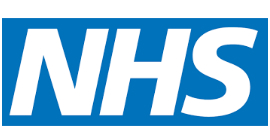Early Intervention Eating Disorders
Health Innovation Networks, including Health Innovation Manchester, are supporting mental health teams across England to speed up diagnosis and treatment of eating disorders in young people aged 16 to 25.
What is the problem we’re addressing?
An eating disorder is an unhealthy attitude to food, which can take over an individual’s life and cause illness. It can involve eating too much or too little, or becoming obsessed with your weight and body shape. The most common eating disorders are anorexia nervosa, bulimia, binge eating disorder (BED), and other specified feeding or eating disorder (OSFED).
Eating disorders are serious mental health problems with high levels of mortality.
Peak onset for eating disorders is during adolescence and early adulthood, a sensitive time when the brain is still developing. Evidence from research studies suggests that treatment outcomes are best if the condition is identified and treated at the earliest opportunity, within the first three years of illness.
Resources to treat eating disorders are currently stretched for adults (aged 18 and over) and access to evidence-based treatment and care is often delayed until patients show considerable deterioration. This causes distress to individuals and families and increased costs to the NHS.
In 2013-2015, eating disorders cost the NHS between £3.9 to £4.6 billion each year in treatment costs, and £9.4 to £11.1 billion each year in indirect costs. 30% of young people referred for eating disorders treatment waited over 18 weeks and another 34% waited over six months. For many, their condition worsens whilst waiting.
What are the outcomes we trying to achieve?
- Earlier intervention and treatment of eating disorders in young people
- Reduction in the length of time young people have untreated eating disorders
- Reduction in waiting times, day/in-patient admissions and bed days
- Cost savings through reduced use of healthcare services, in particular reduced need for day/in-patient admissions.
How will we do this?
While resources to treat eating disorders are currently stretched for adults, investment being made available for community mental health services for children and young adults with eating disorders through the NHS Long Term Plan should increase capacity to make early intervention a realistic proposition.
For children and young people, increased investment in dedicated community eating disorder services has already improved access to evidenced care.
Health Innovation Networks will focus on achieving improved outcomes across England, including scaling up existing models that we know work. Find out more about the HEalth Innovation Network national project.
One approach is FREED (First episode Rapid Early intervention for Eating Disorders), a model developed by South London and Maudsley NHS Foundation Trust and King’s College London. This is an evidence-based, specialist care package for 16 to 25-year-olds with a first episode eating disorder of less than three years’ duration. Broadly based on the early intervention model for psychosis, it overcomes barriers to early treatment and recovery and provides highly coordinated early care, with a central focus on reducing the duration of an untreated eating disorder. It consists of a service model and a care package.
Health Innovation Manchester will work with Greater Manchester Health and Social Care Partnership and local mental health providers to support adoption of early intervention eating disorders in areas of Greater Manchester where there is appetite to do so and this is not already in place. Read about the national launch of the programme in this news story.
Health Innovation Manchester has supported the launch of FREED services in Greater Manchester, read more about these services by clicking the images below.
Our Impact








